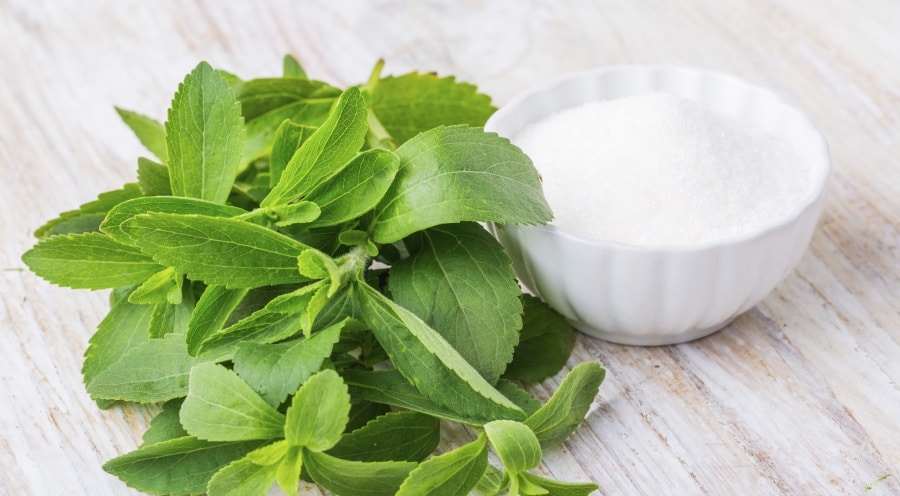
Can stevia be part of a healthy diet?
People ask me all the time about stevia. Is it a guilt-free way to satisfy that sweet tooth—or, like sugar and artificial sweeteners, does it have a dark side? Well, here’s the deal. I’d like to give you a simple answer when it comes to stevia, but it’s a little more complicated than that. First, before we get into the pros and cons, let’s talk a little about what stevia is. Stevia is an herb that contains two substances—stevioside and rebaudioside—which make it very sweet. You can buy stevia in different forms:
- Green leaf stevia contains both stevioside and rebaudioside, and it’s minimally processed. It’s very sweet, but it has a bitter aftertaste.
- Stevia extracts (for instance, SweetLeaf) undergo more refining to lessen the bitterness. They contain varying amounts of stevioside and rebaudioside, as well as some additives (for instance, SweetLeaf contains inulin, a vegetable fiber).
You’ll notice that I didn’t include stevia “derivatives” like Truvia and PureVia on this list. That’s because while these contain a touch of stevia, they’re largely made up of other ingredients you don’t want in your body. (The large amounts of erythritol in Truvia, for instance, can give you headaches, diarrhea, and gas.) In fact, the manufacturers of both Truvia and PureVia had to pay millions of dollars when they were sued for advertising their products as “natural.”
So let’s just cross these guys off the list right now. Okay, back to stevia. Let’s take a look at the good and bad news about it—starting with the downside. As a weight-loss specialist, I know that one of the biggest keys to staying slim and healthy is to break the Sugar Demon’s hold over you. And you won’t accomplish this if you use lots of stevia, because it’s really, really sweet.
Also, using large amounts of stevia may have some negative effects on your gut bacteria. For instance, one recent study found that it inhibited the growth of the beneficial bacteria Lactobacillus reuteri. Now, let’s flip the coin and look at the benefits of stevia. Luckily, there are a lot of them! Here’s a sampling:
• It may lower your risk of breast cancer.
• It appears to lower blood glucose levels in Type 2 diabetics.
• It can reduce blood pressure in people with mild hypertension.
• It has anti-inflammatory effects.
• It protects against atherosclerosis.
• It can help fight infection.
• It has antioxidant properties.
That’s a pretty impressive list, and for me it tips the scales in favor of stevia. It also helps to explain why some cultures have used stevia for centuries both as a sweetener and as a folk remedy for a wide variety of medical problems ranging from circulatory disease to diabetes. Because of these many powerful benefits—and because stevia is infinitely better for you than sugar or artificial sweeteners—my opinion is that, as long as you don’t overdo it, this sweetener can definitely be part of a healthy diet. (Just remember to select an authentic stevia product like green leaf stevia or SweetLeaf, and not Truvia or PureVia.) So go ahead… reach for the stevia occasionally, and give your sweet tooth a happy surprise!
Keep Thinking Big & Living Bold
P.S. Made from 100% grassfed beef and a hint of stevia, my Bone Broth Protein comes in rich chocolate or creamy vanilla flavors. Use it in shakes or smoothies to help you stay on track with your Bone Broth Diet or your 80/20 maintenance plan. This is the ONLY protein powder that boasts 70% collagen with 30% coming from beef meat. It gives you the highest level of collagen to help you heal your gut and slow the clock on your aging skin, joints, and other soft tissues.







